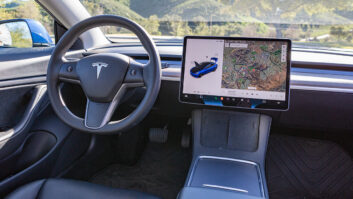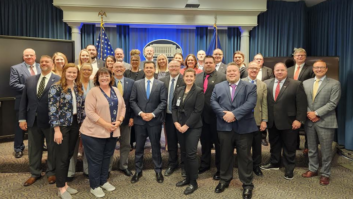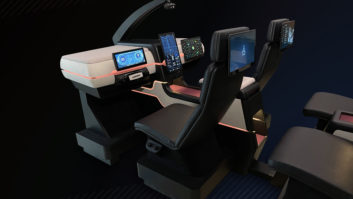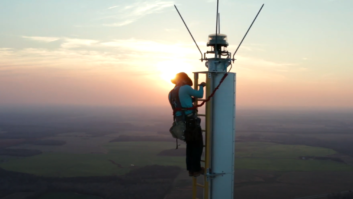Watch Those Hands
Aug 1, 2001 12:00 PM, Chriss Scherer, editor
I am sure you have cursed another driver for paying more attention to his cellphone call than to the road. The sensory blitz of everyday life is hard to avoid, and someone splitting his attention between driving and finalizing dinner plans does not make my travel experience any more enjoyable or safe.

We’re all guilty of splitting our attention while on the road at some point. Some people are better than others in this transit multitasking. My favorite combination is the person smoking, eating putting on makeup or shaving, and adjusting the radio while keeping an eye out for the correct turn. Feel free to take as many lanes as you need.
Some states have already enacted legislation to restrict some of this attention depriving behavior with laws restricting mobile phone usage to hands-free operation only. While this certainly helps keep both hands available for the wheel (or more likely the Super Big Gulp) it does not guarantee that the driver’s mind is on the road.
This movement has now moved to a national level. In May, separate Bills were introduced to the House and the Senate, which are designed to force states to enact laws restricting the use of mobile phones while operating a motor vehicle. The House Bill (H.R. 1837), introduced by Representative Ackerman of New York, is titled the Call Responsibly and Stay Healthy Act 2001. The Senate version, introduced by Senator Cozine of New Jersey, is titled the Mobile Telephone Driving Safety Act of 2001 (Bill S. 927).
Both Bills have very similar wording and call for the states to pass laws requiring mobile phones to only be used with hands-free adapters while the user operates a motor vehicle. The only exception is for emergencies. States that do not pass laws that fall into this area will have federal highway funds withheld. This process was also used to raise state drinking ages to 21.
From a consumer point of view, this is a great idea. As I mentioned earlier, there are already too many distractions on the road, and keeping both of the driver’s hands free will certainly help. For the business of radio, there could be some undesired consequences.
The immediate nature of radio sometimes relies on cellphones for a last-minute on-air report. When a report deals with a crisis, and the reporter uses a cellphone, it may qualify as an emergency. Station personnel could easily claim that the report is a call to action. Weather emergencies and other events do not wait for someone to plug in a hands-free adapter.
When the station’s employee driving to the remote site calls the station for directions, it is not an emergency if he is five minutes late for the appearance at the Hot Tub Outlet. Likewise, a salesperson arranging a quick tee time is not part of an emergency.
Situations like these can bend the rules on emergency use, and it will be up to the individual person to make the right choice and not try to get special treatment to evade the law.

One other potential consequence concerns the actual definition of �mobile telephone.� The Bills target users of hand-held telephones on public switched networks, such as PCS, GSM and analog cellular. If the definition is not clearly defined, it could also cover two-way radios and any point-to-point two-way communication. Some stations could be heavily affected by legislation that is too broad in its coverage.
This could become a situation to watch as the Bills make their way through the process. Both are currently in committee review, so it may be a while until they see much public activity. When someone says there ought to be a law, be careful what you wish for. You just might get what you thought you wanted if you don’t define the terms properly.
Chriss Scherer, editor












